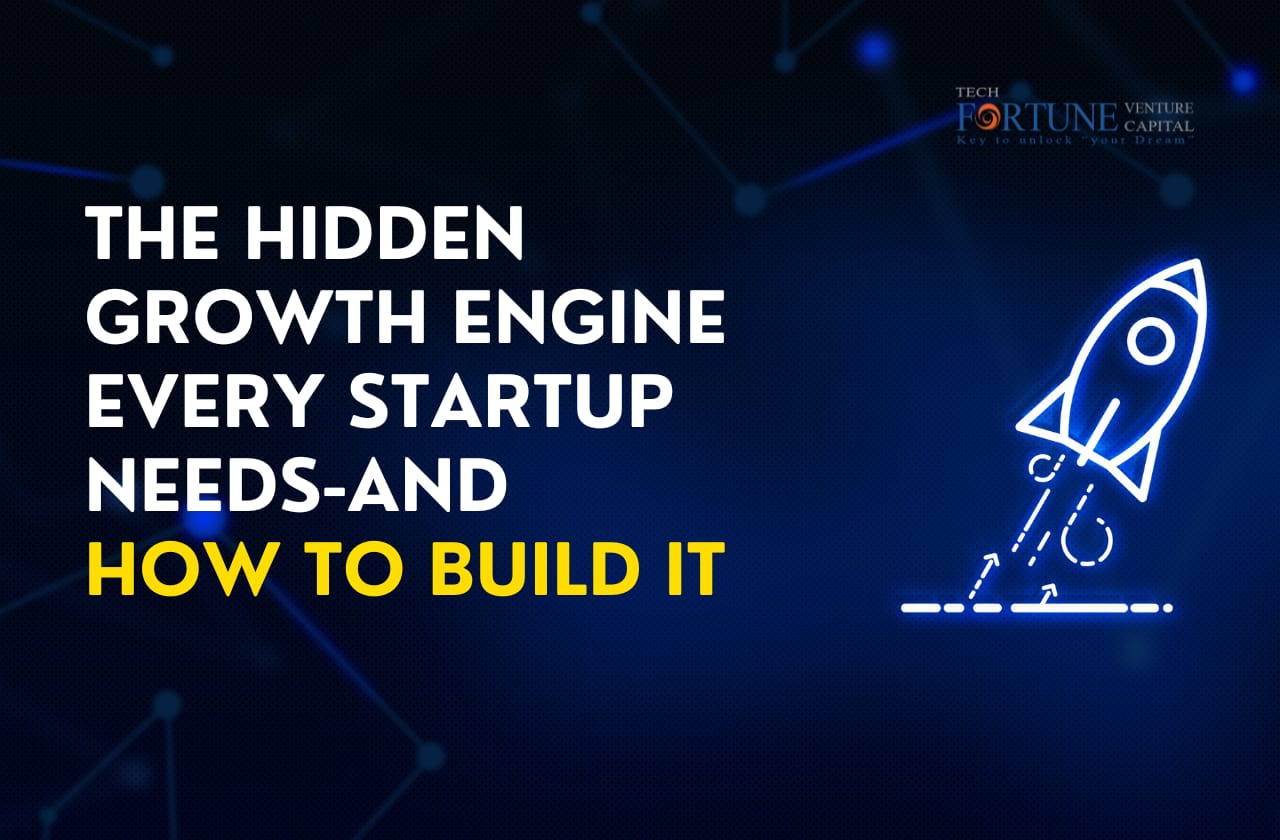“The Hidden Growth Engine Every Startup Needs—And How to Build It”
Starting a business is exciting. You have a spark of an idea, the motivation to make it happen, and a vision of what success could look like. But here’s the truth—ideas alone don’t grow companies. It’s the way you shape, refine, and execute those ideas that truly determines whether a startup thrives or fizzles out.
That’s where strategic ideation comes in. It’s not just about brainstorming; it’s a structured process that takes an initial concept and develops it into a sustainable, scalable business model. And when you combine that process with the right guidance, resources, and networks—like those offered by Techfortune Venture Capital—the chances of success grow dramatically.
Why Strategic Ideation Matters
A great idea can be exciting, but without a roadmap, it can easily lose direction. Strategic ideation gives startups that roadmap. It’s about:
- Understanding the real market need.
- Refining the product or service to meet that need.
- Laying out a clear action plan for growth.
It’s also about anticipating challenges before they arise—something most first-time founders struggle with. A structured approach reduces risks, helps prioritize resources, and ensures every move pushes the business toward its bigger vision.
Techfortune Venture Capital: More Than Just Funding
Many people think venture capital firms simply invest money. Techfortune Venture Capital goes far beyond that. They’ve built an ecosystem designed to help startups grow—offering everything from leadership development to marketing support and operational guidance.
Here’s how Techfortune blends strategic ideation with hands-on support to set startups on a growth trajectory.
1. Building a Core Leadership Team
No matter how innovative an idea is, it takes the right people to bring it to life. Techfortune helps founders find and build a strong leadership team—people who not only understand the vision but can also drive results. Having the right decision-makers early on can make the difference between steady growth and constant firefighting.
2. Networking at the Right Stage
One of the most underrated growth drivers for startups is having the right connections. But timing is everything. Introducing a pre-revenue startup to a large-scale distributor might not make sense yet, while finding an early adopter or mentor could be invaluable.
Techfortune uses its network to connect founders with the right people at the right stage—whether that’s potential investors, partners, clients, or industry experts. This stage-based approach ensures that networking efforts actually move the business forward.
3. Operational Support for Smooth Scaling
In the early days, many founders will focus heavily on the product or service and overlook operations. But when sales pick up, poor systems can quickly turn growth into chaos.
Techfortune’s operational support helps startups set up processes, optimize workflows, and prepare for scale. This means founders can focus on innovation and customer experience while knowing the back-end is built to handle expansion.
4. Marketing for a Strong Digital Footprint
In today’s digital-first world, if customers can’t find you online, you almost don’t exist. A great product will still struggle if no one knows about it.
Techfortune works with startups to create a strong digital presence—from social media strategy to targeted online campaigns—helping them reach the right audience, build trust, and establish a brand identity that stands out in the market.
5. Augmented Support in Finance, HR, and Infrastructure
Startups often run lean, which can leave critical areas like finance, HR, and infrastructure underdeveloped. Hiring full-time specialists in every role isn’t always realistic early on.
Techfortune solves this by providing augmented support—specialist expertise on demand. This gives startups access to experienced professionals in finance, HR, and infrastructure without stretching budgets too thin, ensuring the foundations of the business remain strong.
6. Mentoring and Guidance from In-House Investors
Launching a startup is one thing; scaling it sustainably is another. Many founders enter the market with enthusiasm but struggle to maintain momentum as challenges evolve. Having the right guidance makes all the difference.
With Techfortune’s in-house investors providing ongoing mentoring and strategic direction, startups gain valuable insights on market shifts, funding strategies, and operational improvements. This ensures founders stay agile, avoid common pitfalls, and remain aligned with long-term growth goals.
The Power of Combining Strategy with Support
A strategic ideation process creates clarity—it defines where the business is going and how it will get there. But when that strategy is paired with practical, ongoing support like Techfortune’s, it becomes more than just a plan—it becomes an engine for growth.
Founders no longer have to figure everything out alone. They gain access to mentors who’ve been through the journey, a network that opens doors, and operational expertise that keeps the business running smoothly.
Wrap Up:
If you’re a founder, remember this: your idea is just the beginning. The real magic happens when you combine it with a structured growth plan, the right people, and access to resources that let you focus on building rather than constantly putting out fires.
Techfortune Venture Capital offers exactly that—a complete growth ecosystem that supports startups at every stage. From shaping the idea to scaling operations, their services ensure that innovation doesn’t just stay on paper but becomes a thriving, profitable reality.
When strategy and execution work hand-in-hand, startup growth isn’t just possible—it’s inevitable.
FAQ:
Ideation should begin as early as possible—ideally before launching—to refine concepts, identify market fit, and build a clear roadmap, reducing costly mistakes during growth and scaling phases.
Yes. By reassessing goals, market needs, and internal capabilities, strategic ideation can reveal new opportunities, enabling struggling startups to pivot quickly and reposition for long-term growth.
Unlike traditional planning, strategic ideation is dynamic and iterative, involving continuous idea refinement, real-time adjustments, and alignment with evolving market trends and customer demands.
Skipping ideation often leads to unclear priorities, poor market positioning, inefficient resource use, and missed growth opportunities—problems that become harder and costlier to fix later.
